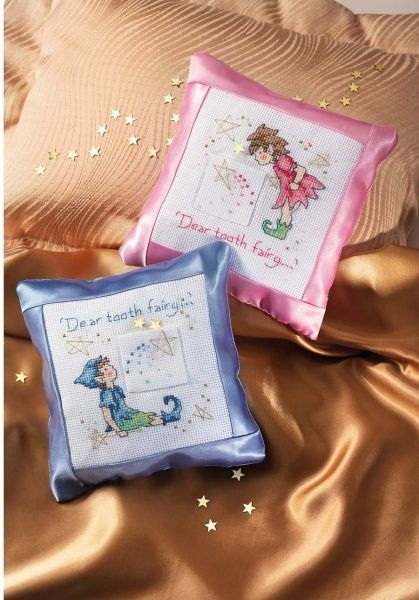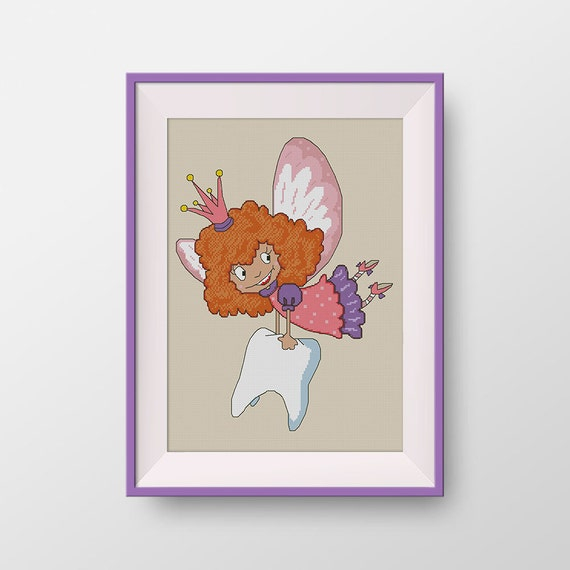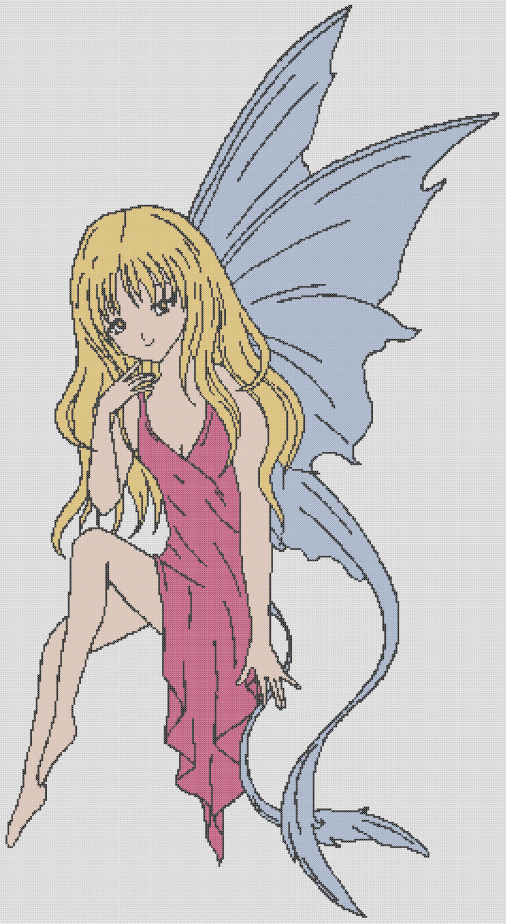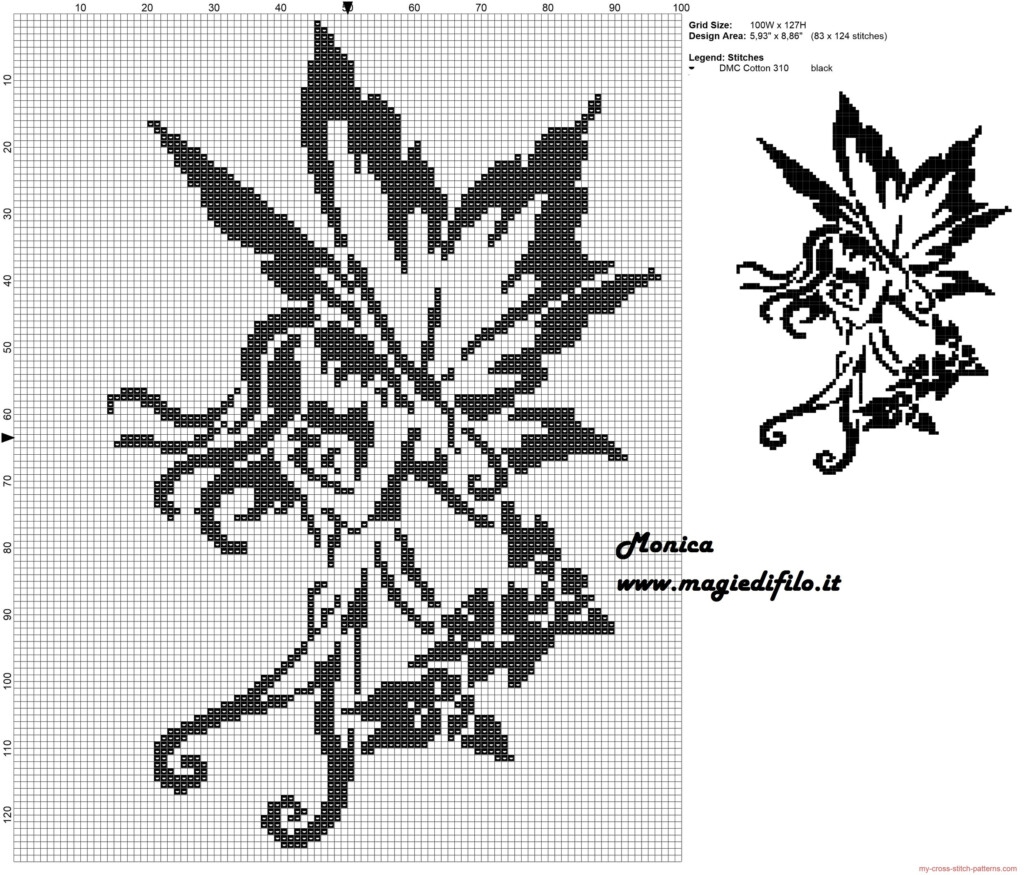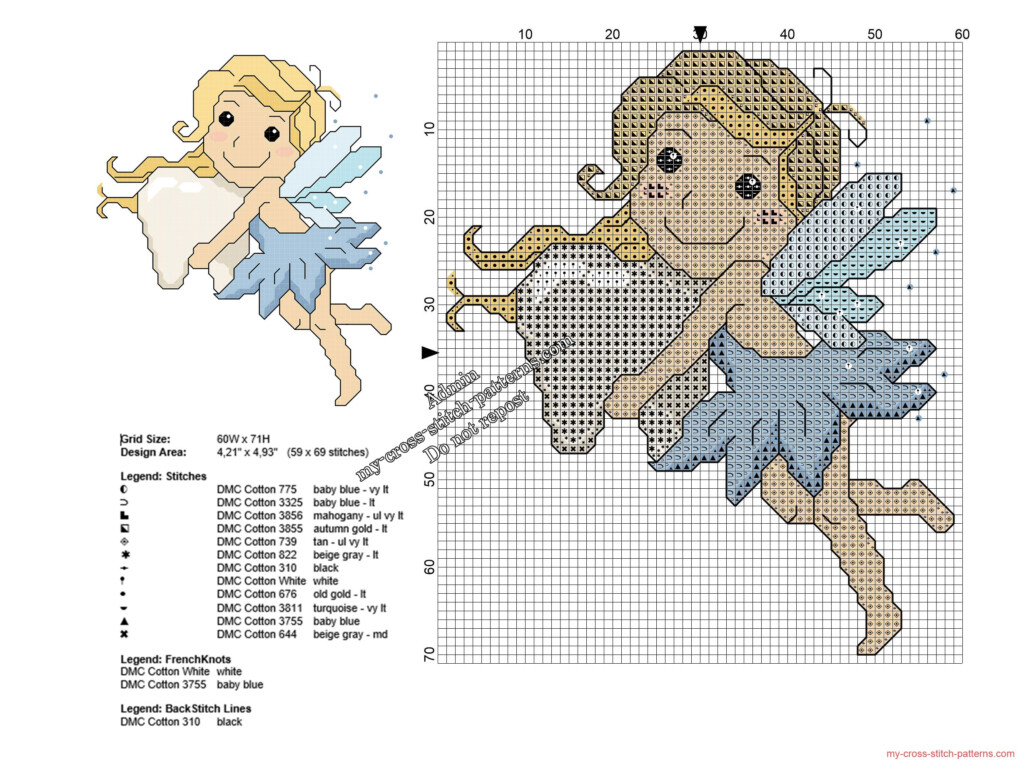Tooth Fairy Cross Stitch Pattern Free – Cross stitch is a timeless and enjoyable embroidery technique that allows you to develop sensational designs with just a needle, thread, and fabric. Whether you’re a newbie or a skilled stitcher, comprehending Tooth Fairy Cross Stitch Pattern Free is key to crafting beautiful items. In this overview, we’ll check out everything you need to find out about cross stitch patterns, from necessary products to advanced methods, making sure that you gain the self-confidence to produce intricate and professional-quality styles.
What is a Tooth Fairy Cross Stitch Pattern Free?
A Tooth Fairy Cross Stitch Pattern Free is a grid-based design that guides stitchers in developing a stitched photo. Each square on the pattern represents a stitch, with different shades and symbols corresponding to certain thread tones. These patterns can range from basic concepts to elaborate works of art, offering an endless variety of creative opportunities. Recognizing just how to check out and follow these patterns appropriately is crucial for both accuracy and effectiveness in your sewing tasks.
Why Use a Pattern?
- Consistency: Ensures harmony in stitches and design, making your work show up brightened and expert.
- Advice: Helps newbies follow a structured method, decreasing mistakes and confusion.
- Creative Freedom: Allows customization with various shade selections, making every item special to the stitcher.
- Scalability: Can be gotten used to various fabric dimensions and stitch counts, making it adaptable for different task sizes.
- Effectiveness: Saves time by providing a clear roadmap, assisting stitchers prepare their operate in breakthrough and prevent unneeded mistakes.
Products Needed for Tooth Fairy Cross Stitch Pattern Free
To start with cross stitch, you’ll require the appropriate products. Right here’s a breakdown of crucial devices:
| Material | Summary |
|---|---|
| Fabric | Aida towel is generally utilized as a result of its easy-to-count grid. Linen and evenweave materials use finer detail, best for sophisticated stitchers. |
| Strings | Embroidery floss, typically DMC, Anchor, or Madeira brands. Readily available in numerous shades to bring designs to life. |
| Needles | Tapestry needles with blunt pointers to stop fabric damage. The right dimension depends upon fabric kind and personal preference. |
| Hoop/Frame | Maintains fabric taut, avoiding creases and unequal stitching, making certain uniformity in your stitches. |
| Scissors | Tiny, sharp embroidery scissors for precise thread cutting and trimming excess fabric. |
| Pattern Chart | Printed or digital Tooth Fairy Cross Stitch Pattern Free for support, providing clear directions on stitch positioning and color selection. |
| Light | A well-lit work area assists avoid eye strain and permits better accuracy in stitch positioning. |
| Thread Organizer | Maintains embroidery floss tangle-free and simple to gain access to, making color adjustments extra reliable. |
Reading a Tooth Fairy Cross Stitch Pattern Free
A properly designed Tooth Fairy Cross Stitch Pattern Free gives all the essential information to bring your design to life. Understanding exactly how to analyze a pattern effectively makes certain accuracy and effectiveness in your job.
1. Symbols and Color Key
Patterns use signs to stand for various thread shades. Each sign represents a certain floss color, typically detailed in a tale with the thread brand and number. Familiarizing on your own with this tale prior to beginning will certainly make sewing much smoother.
2. Grid System
Tooth Fairy Cross Stitch Pattern Free are prepared on a grid where each square stands for one stitch. The darker lines indicate every 10 squares, aiding you count and place your stitches accurately. This structure makes sure placement and stops blunders when stitching huge, elaborate designs.
3. Stitch Types
- Complete Cross Stitches (X): The typical stitch, creating an X form that gives complete insurance coverage.
- Fifty Percent Stitches (/): Used for shielding and fine information, producing a smoother gradient effect.
- Backstitching (-): Used to lay out and define shapes, including deepness and clarity to the design.
- French Knots (o): Adds structure and ornamental accents, generally made use of for eyes, flowers, and decorations.
- Lengthy Stitches (–): Stitches that extend numerous squares to create special impacts, often utilized in specialized designs.
4. Beginning Point
Many patterns suggest beginning at the center to ensure proper placement. Discover the facility by folding the fabric in half both ways, marking the center with a water-soluble pen or a tiny stitch. Beginning with the facility assists maintain balance and equilibrium throughout the job.
Standard Cross Stitch Techniques
Understanding these methods will improve your sewing effectiveness and results, making sure that your jobs look expert and refined.
1. Preparing Your Fabric
- Laundry and iron fabric prior to beginning to remove wrinkles and prospective discolorations.
- Use a hoop or frame to keep it taut, stopping misaligned stitches.
- If using Aida towel, bind the edges with masking tape, battle royal check, or a zigzag stitch to avoid fraying with time.
- Take into consideration gridding the fabric with cleanable fabric pens to help with alignment.
2. Threading the Needle
- Cut an item of embroidery floss around 18 inches long to avoid tangling.
- Use one to three hairs, depending on fabric count and preferred insurance coverage for ideal outcomes.
- Thread the needle and safeguard the starting end with a loophole or little knot, or use the “loophole method” for a neater back.
3. Sewing Methods
- Paddle Method: Complete one half-stitch (/) across a row, then return with the other half () to create an X. This works for maintaining stitches attire.
- One-by-One Method: Complete each full X before moving to the following stitch, ideal for patterns with constant shade modifications.
- Parking Method: Useful for complicated styles, permitting stitchers to deal with numerous shades without complication.
4. Protecting Threads
- Prevent knots at the rear of your work; rather, weave the thread under previous stitches for a tidy and expert coating.
- Maintain the back cool to avoid bulkiness and unequal stress, which can distort the fabric.
Typical Mistakes & & How to Avoid Them
| Mistake | Remedy |
| Miscounting stitches | Constantly cross-check the grid and make use of a highlighter to mark finished sections. Double-check before moving on. |
| Unequal tension | Maintain constant tension; stay clear of drawing too tight or leaving stitches also loose. Consistency is vital to professional-looking work. |
| Incorrect thread color | Double-check the pattern key prior to beginning each area to avoid time-consuming mistakes. |
| Fraying fabric | Protected edges with tape or a stitching maker zigzag stitch. Utilizing a hoop helps reduce fraying. |
| Messy back | Keep the back tidy by weaving in loose ends nicely. This will avoid swellings when framing the finished piece. |
Download Tooth Fairy Cross Stitch Pattern Free
Final Thoughts
Tooth Fairy Cross Stitch Pattern Free use countless possibilities for imagination and craftsmanship. Whether you’re following a classic design or developing something distinct, understanding the principles of reviewing patterns, selecting products, and perfecting techniques will certainly help you create magnificent jobs. Keep practicing, experimenting, and most notably, delighting in the process of stitching! Cross stitch is not simply a pastime– it’s an art type that enables you to bring complex layouts to life, one stitch each time.
Happy stitching!

